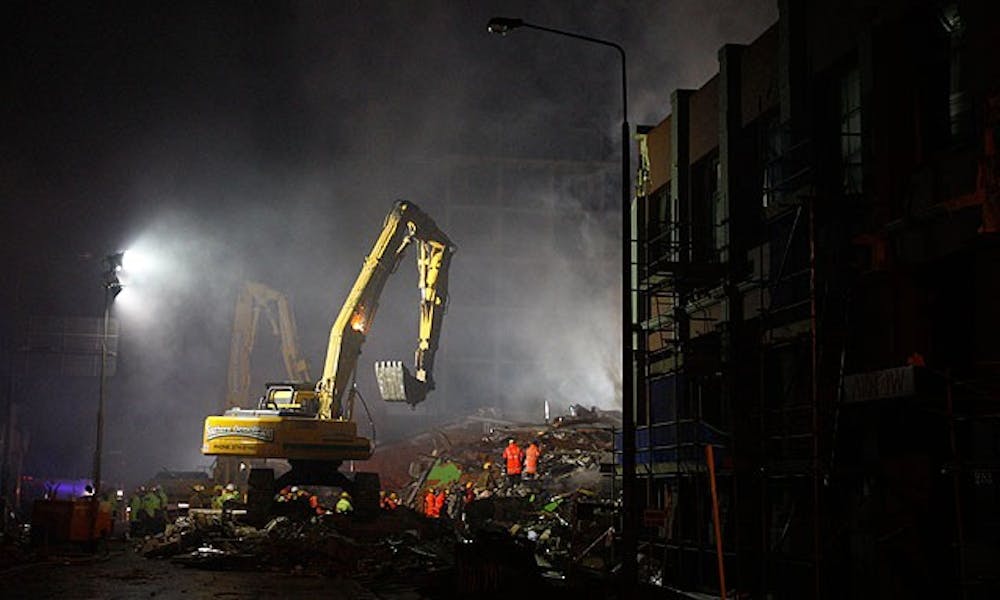A devastating earthquake in New Zealand is hitting home for some Duke students.
Monday in New Zealand an earthquake destroyed several buildings and resulted in at least 75 fatalities in Christchurch, according to the country’s Ministry of Civil Defence and Emergency Management. The epicenter of the 6.3-magnitude earthquake occurred 10 kilometers from the city, which is New Zealand’s second largest. The most recent major quake, which occurred in September 2010, measured a 7.1 but caused less damage and no casualties.
Some of the worst damage was sustained in the city’s central business district, where several buildings collapsed. The area was promptly evacuated and a national state of emergency declared. Although rescue workers continue to seek out trapped individuals, authorities expect the death toll to rise.
For some Duke students from New Zealand, the earthquake has highlighted the emotional difficulties of living so far from home. Senior Natalie Crimp, a native of Christchurch, received a Facebook message from her uncle saying that her family is safe, though she could not reach her family Tuesday due to damaged infrastructure.
“It’s the most gut-wrenching thing to watch the news reports and see all of these places that I love in rubble,” Crimp wrote in an e-mail Tuesday. “I just saw a video where rescue crews were pulling a body out of what used to be my high school. Being on the other side of the world, not being able to see my family right now, it’s indescribably painful and frustrating.”
Junior Ollie Wilson is also a native of New Zealand and used Facebook to contact friends in the affected region. Wilson noted that the relevance of the Internet in the tragedy’s aftermath, pointing out that Google set up a website that people can use to either locate or report missing friends and family.
Freshman Angela Zhou, originally from Auckland, said even though New Zealand is located on a fault line, large quakes have been infrequent in her lifetime.
Zhou remembers being taught as a child what to do in the event of an earthquake, but said that it was not a major concern.
“The country does do a fair bit,” Zhou said. “But it’s not a hugely pressing, in-your-face preparedness thing.”
Like much of the United States’ West Coast, New Zealand is on a plate boundary, Alan Boudreau, director of graduate studies in earth and ocean sciences, wrote in an e-mail Tuesday. Boudreau was in Auckland when the quake struck.
“This is where the large plates that make up the outer layer of the earth meet and move relative to each other,” Boudreau said. “Thus it is prone to frequent and sometimes devastating earthquakes, as is California.”
Although the earthquake was moderate in magnitude, Paul Baker, professor of earth and ocean sciences, said the quake’s proximity to the surface worsened its effects on Christchurch and surrounding regions.
“It was a very shallow earthquake, about five kilometers below the surface,” said Baker. “Think of when you throw a pebble in a pond and the little waves move away from the impact—the energy of those waves is much less as the waves move farther away from the impact.”
Get The Chronicle straight to your inbox
Signup for our weekly newsletter. Cancel at any time.

